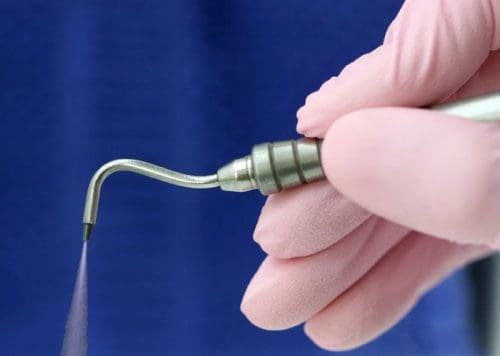Safe, Accurate Dental X-Rays in Temple, TX
At City Creek Dental, we use advanced digital dental X-rays in Temple, TX to detect oral health issues early – before they become painful or costly. Whether you’re a new patient or visiting for routine care, our imaging technology allows us to see beyond the surface of your teeth and gums to provide precise, personalized treatment.
Why Are Dental X-Rays Important?
Dental X-rays help uncover problems that aren’t visible during a standard visual exam, including:
- Tooth decay between teeth
- Bone loss from gum disease
- Impacted teeth or wisdom teeth
- Infections at the root
- Early signs of cysts or tumors
As part of our commitment to preventive care, dental X-rays in Temple, TX help our team create a full picture of your oral health and develop a customized treatment plan.
What Are Digital X-Rays and How Do They Work?
Unlike traditional film X-rays, digital X-rays use electronic sensors to capture high-resolution images instantly. The process is quick, comfortable, and produces up to 90% less radiation than older methods. You’ll be able to view the results chairside with your dentist, making it easier to understand what’s happening beneath the surface.
How do digital X-rays work?
A small sensor is placed in your mouth, which sends the image directly to a computer monitor. These images can be enlarged, color-enhanced, and stored in your digital record for long-term comparison.
Are Digital Dental X-Rays Safe?
Yes. Our digital dental X-rays are not only effective but extremely safe. We follow the ALARA principle (As Low As Reasonably Achievable) to ensure you receive the lowest radiation dose necessary for diagnostic accuracy. Digital X-rays are safe for both adults and children, and we provide protective aprons and collars when needed.
How Often Should Dental X-Rays Be Taken?
This depends on your age, dental history, and risk factors. Here’s a general guide:
- New patients may need a full set of X-rays to establish a baseline.
- Routine check-ups often include bitewing X-rays once a year.
- High-risk patients (e.g., with gum disease, frequent cavities, or complex dental work) may need X-rays more frequently.
- Children may require X-rays more often to monitor growth and development.
If you’re wondering how often dental X-rays should be taken, our team will evaluate your needs and recommend a schedule that ensures you stay healthy — without unnecessary imaging.
Types of Dental Imaging We Offer
Our dental imaging suite includes:
- Bitewing X-Rays – for spotting cavities between teeth
- Periapical X-Rays – to assess the root and surrounding bone
- Panoramic X-Rays – a full view of your mouth, jaw, and sinuses
- CBCT Scans (3D Imaging) – used for implants and surgical planning
Together, these tools help us deliver accurate diagnoses and long-term oral health solutions.
Why Choose City Creek Dental for Dental Imaging in Temple, TX?
As your family-friendly dental office in Temple, we combine compassionate care with the latest technology to give you the best experience possible. Whether you’re here for a routine cleaning or preparing for more advanced care, our digital X-rays are designed to make your visit fast, comfortable, and highly effective.
Schedule Your Digital Dental X-Rays Today
Looking for safe, modern dental imaging and X-rays in Temple, TX?
We’re here to help you take control of your oral health. Call City Creek Dental or schedule your appointment online today!





